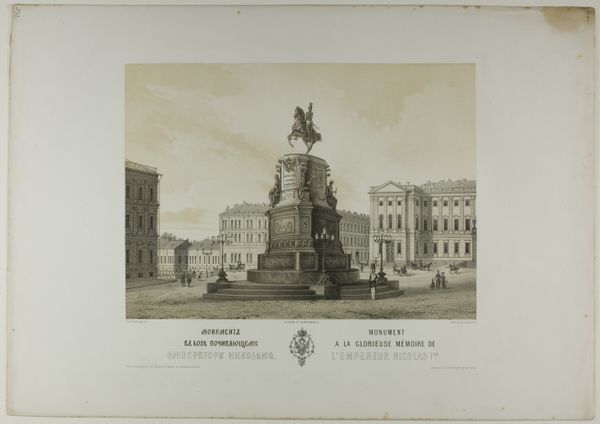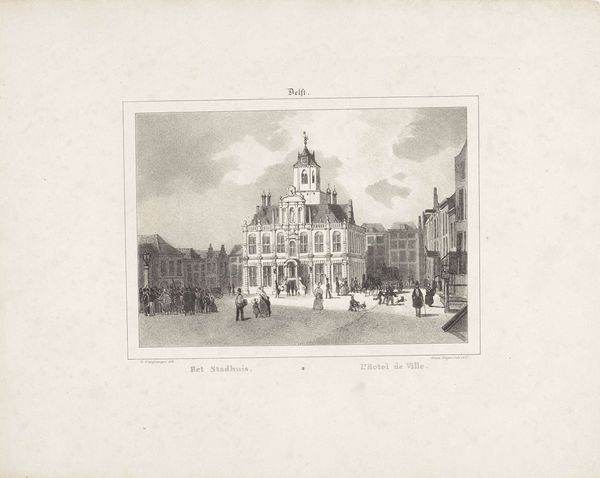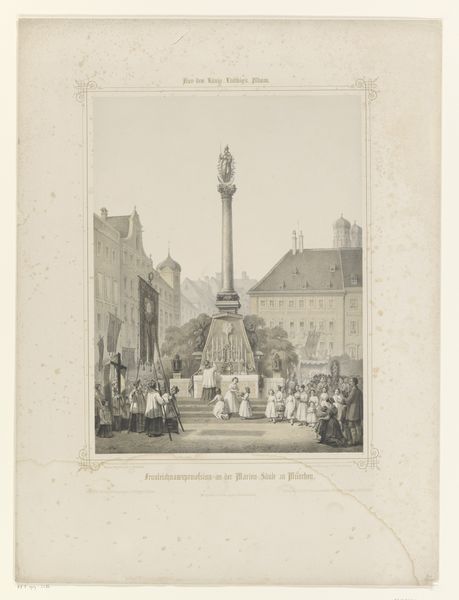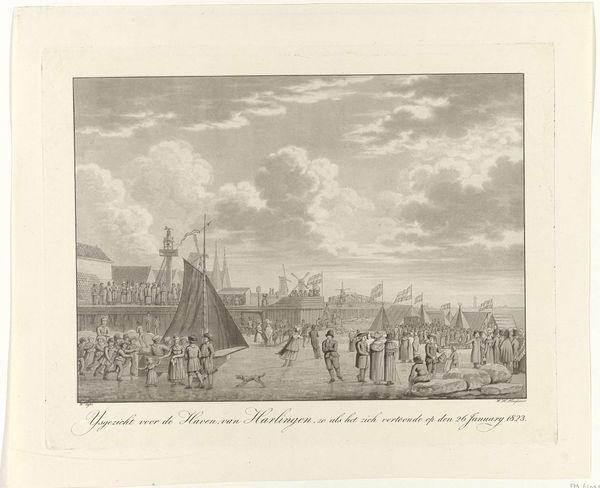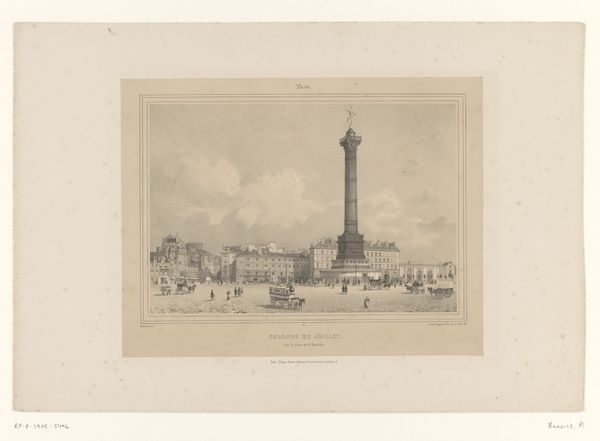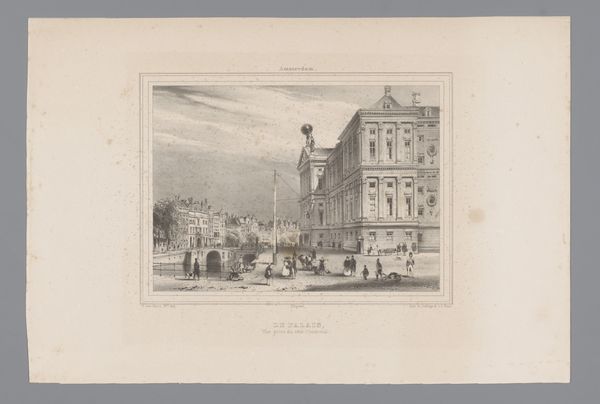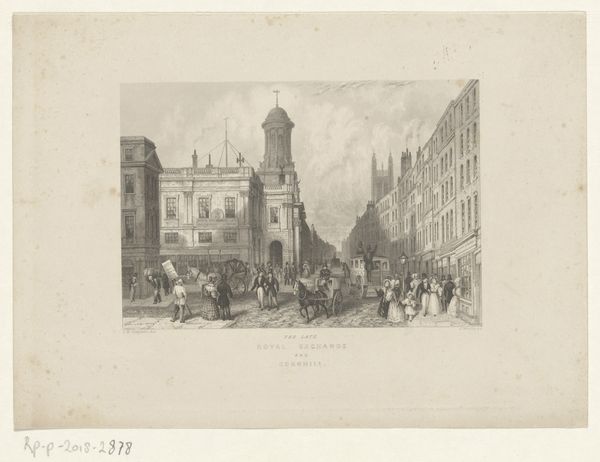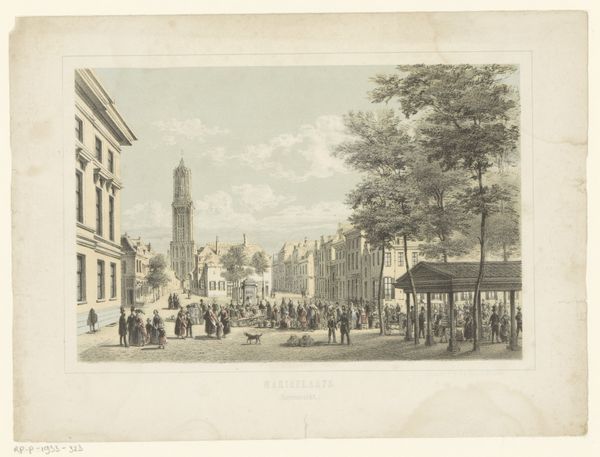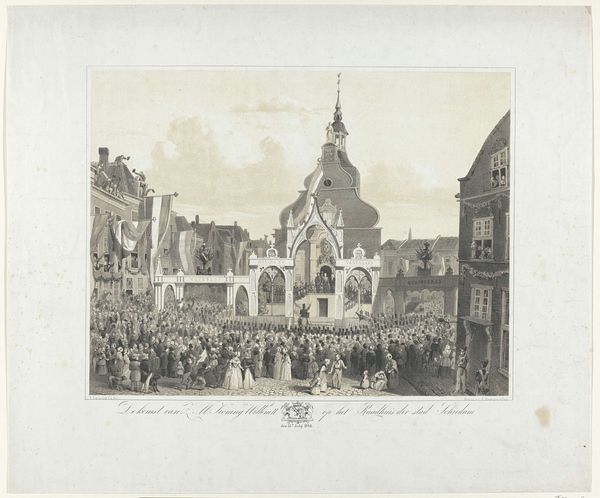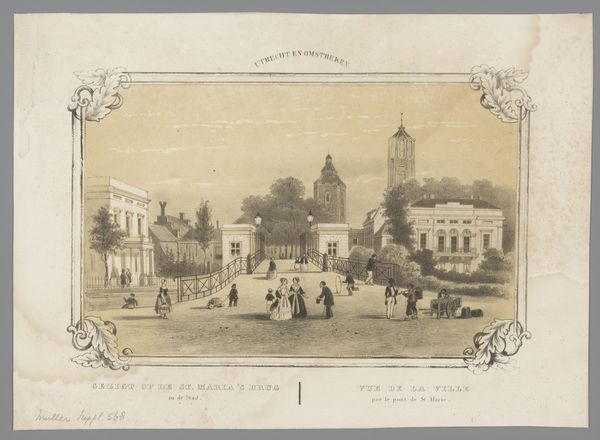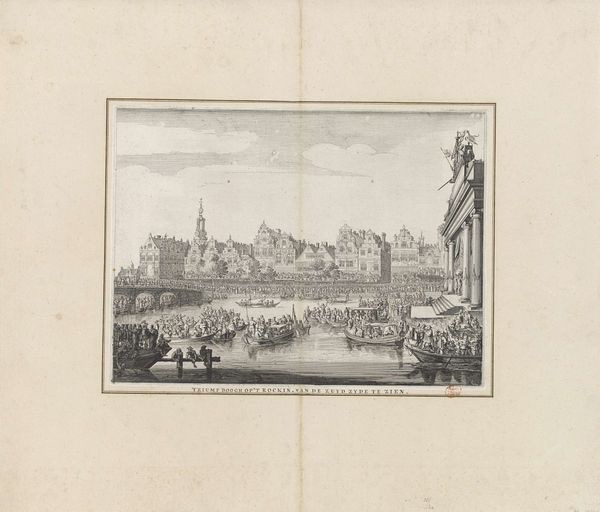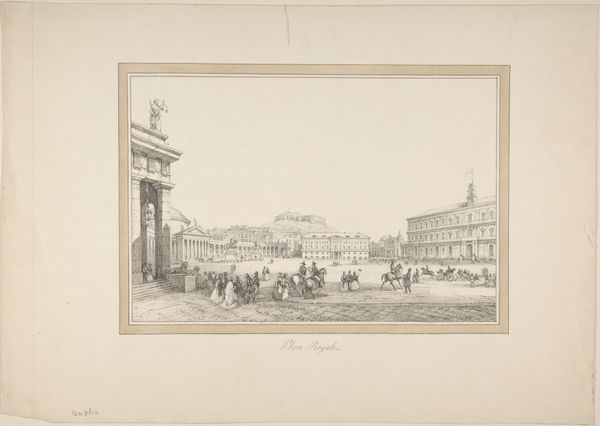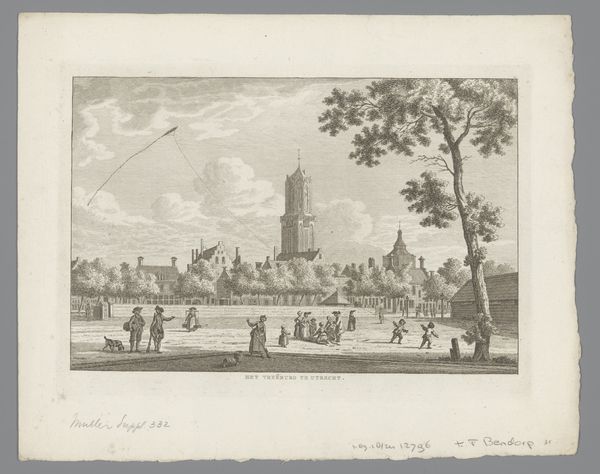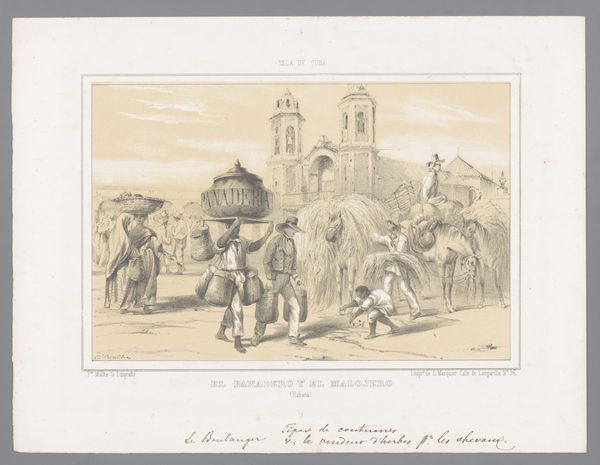
Standbeeld van Willem II, koning der Nederlanden, op het Buitenhof te Den Haag 1853 - 1949
0:00
0:00
anonymous
Rijksmuseum
print, engraving
# print
#
landscape
#
cityscape
#
history-painting
#
academic-art
#
engraving
#
realism
Dimensions: height 269 mm, width 353 mm
Copyright: Rijks Museum: Open Domain
Editor: This engraving, dating sometime between 1853 and 1949, depicts a statue of Willem II in the Buitenhof in The Hague. It’s a fairly traditional cityscape, but the presence of all those figures gives it a really lively feel. What strikes you most about this image? Curator: The statue of Willem II becomes a focal point, a symbolic bridge linking the city's past and present. Note how the city almost becomes an extension of the king. The artist makes Willem’s gaze connect to his people in an almost idealized way, doesn't it? What feeling does that evoke for you? Editor: It feels like it's meant to inspire respect and a sense of history, almost like an attempt to cement the monarchy's place in the collective memory. But with so many ordinary people, the artist shows his presence is part of their daily lives. It’s quite clever, actually! Curator: Precisely! The choice of engraving as a medium further reinforces the idea of permanence and accessibility, prints being reproducible and widely distributable. Doesn’t it make you wonder about the image’s role in shaping public perception of the monarchy at that time? Consider the image's use of public space: are these neutral bystanders, or intentional compositional elements in a symbolic relationship to power? Editor: That makes me think about the function of this piece. Was it pure admiration, or perhaps something more… strategic? Curator: The statue certainly performs a cultural function. Representations such as these ensure cultural continuity. Every element, consciously or not, shapes how history is remembered and perceived. Editor: I hadn't really considered how deeply symbolism permeates even seemingly straightforward images like this. Now I see the cityscape is far more intricate and layered than I first assumed. Curator: Indeed. And with that we create our own history.
Comments
No comments
Be the first to comment and join the conversation on the ultimate creative platform.
